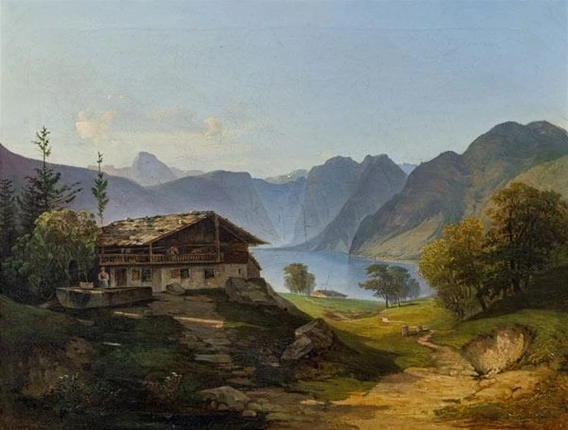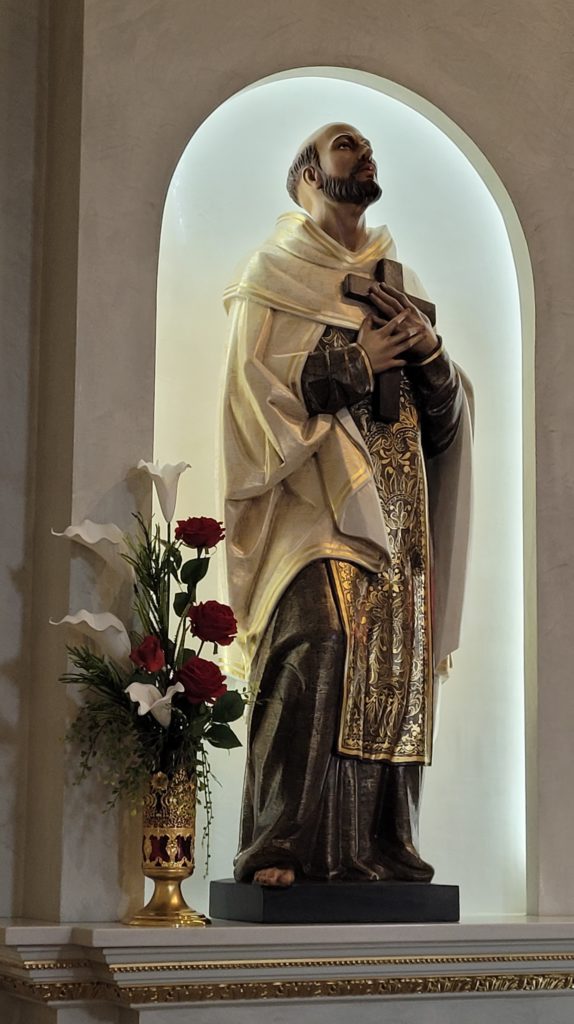Then everyone prepared to start.
The alpine hut was not far from Gschaid and in summer one could see it plainly from the village with its little bell-tower on the green of the upland pasture; but just below was a precipitous drop of many fathoms; it could be descended in summer but only with spiked shoes, and in winter not at all. One had to take a roundabout way to the col and thence down to Gschaid from the memorial post. By that way, one crossed the alpine meadow which is still nearer Gschaid and could, from there, almost imagine one saw the windows of the village.
Because of the commotion in Gschaid that morning, the priest had postponed High Mass, supposing the children would soon be found. But still no word came, so the rites must be observed, and when those crossing the Sider meadow heard the little bell that signified the Elevation of the Host, all sank on their knees in the snow and prayed. Then, when the sound of the bell died away, they rose and went on.
The shoemaker carried little Sanna most of the way, she telling him everything.
When they had almost reached the col-forest they came upon footprints and the shoemaker said, “No work of mine made those marks.”
It was soon explained. Attracted, no doubt, by the echoing of the many voices, another searching party was coming to join the one descending. It was headed by the dyer, chalk-white with fear, who had come down the mountain with his workmen, apprentices, and others from Millsdorf.
“They’ve been over the glacier and the crevasses without knowing it,” the shoemaker called out to his father-in-law.
Well here they are—here they God,” answered the dyer. “I knew they must be up there when your messenger came in the night and we set out with lanterns and searched the whole woodland without finding anything; then as the gray of dawn broke, I noticed on the way from the memorial post, the child said: “Mother, last night when we were up there on the mountain, I saw the Holy Christ-child. “
“O my brave long-suffering, my precious, my beloved child,” answered her mother, “He has also sent you some presents and you are to have them now.”
The cardboard boxes had been unpacked and the candles lit, the door into the big room was opened, and from their beds the children saw the belated, brightly shining, welcoming Christmas tree. Despite their fatigue they wanted to put on some clothes so that they could go into the other room; and there they received their presents, admired them, and then fell asleep over them.
Gschaid Inn that evening was livelier than usual. All who had not been in church were there; the others also. Each related what he had seen and heard, what he had done, what advised, what he had experienced and all the risks he had run. And especially was it emphasized how everything could have been done differently and better.
A Christmas epoch-making in the history of Gschaid, the subject of conversation for a long time, it will be talked of for years to come, especially on clear days when the mountain is unusually distinct or when someone is describing its characteristics to strangers.
Only from that day on were the children really felt to belong to the village, and not to be outsiders. Thenceforth they were regarded as natives whom the people had brought back to themselves from the mountain.
Their mother Sanna was now a native of Gschaid too.
The children, however, can never forget the mountain, and earnestly fix their gaze upon it when in the garden, when as in times past the sun is out bright and warm, the linden diffuses its fragrance, the bees are humming, and the mountain looks down upon them as serene and blue as the sky above. –Adalbert Stifter ‘Rock Crystal’

Painting by Adalbert Stifter




Recent Comments